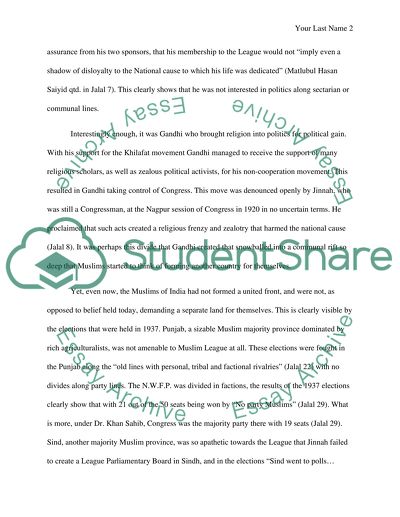Book analysis on the book The Sole Spokesman: Jinnah, the muslim Essay. Retrieved from https://studentshare.org/history/1487275-book-analysis-on-the-book-the-sole-spokesman
Book Analysis on the Book The Sole Spokesman: Jinnah, the Muslim Essay. https://studentshare.org/history/1487275-book-analysis-on-the-book-the-sole-spokesman.


